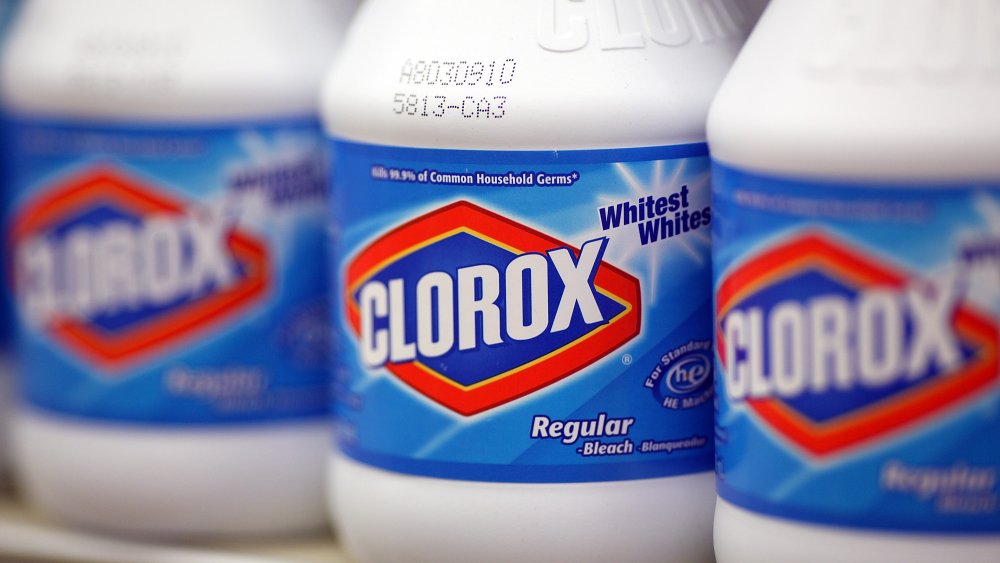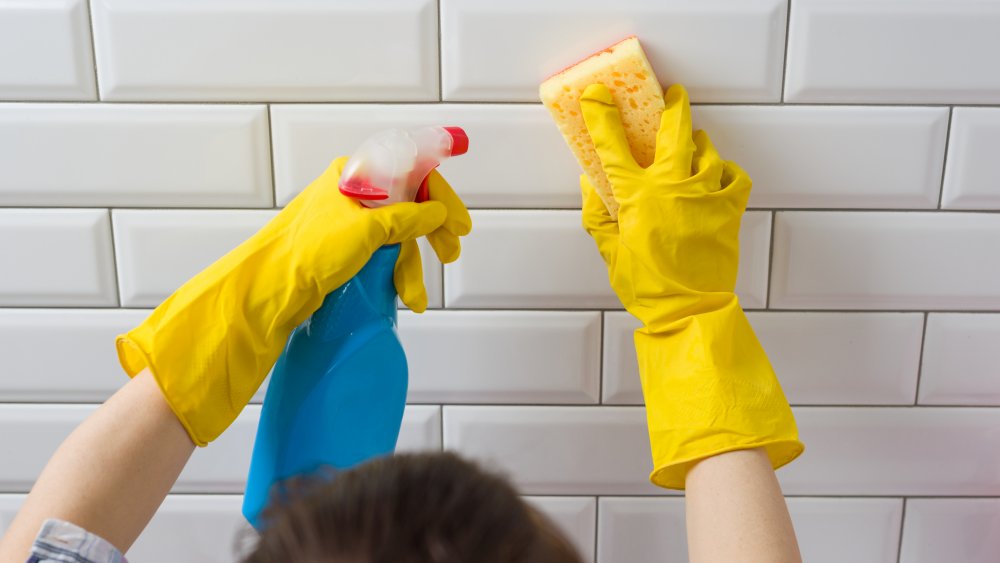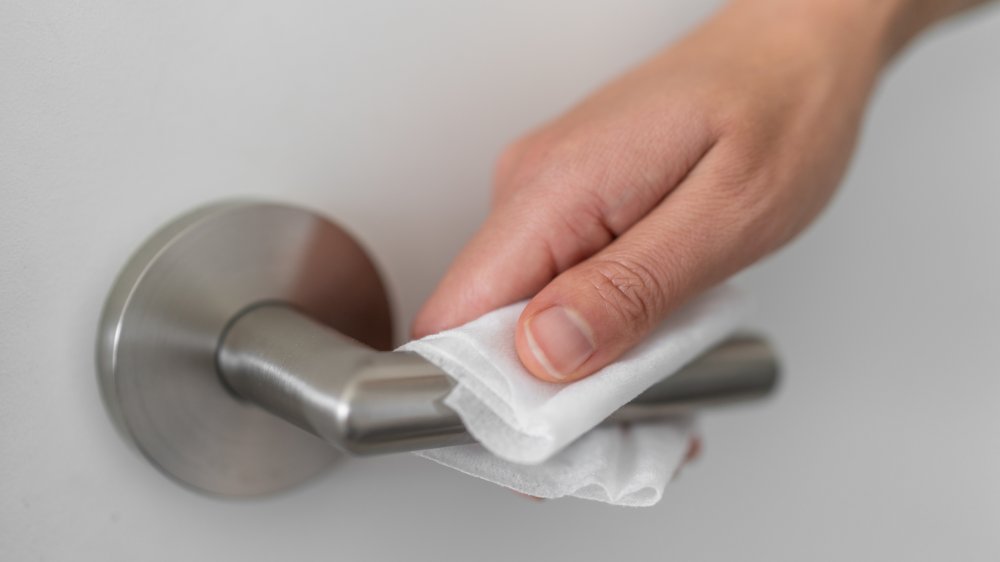Do Household Cleaners Really Kill The Coronavirus?
As far as health scares go, this is probably one of the most unsettling ones we've experienced yet. In just six weeks, the COVID-19 coronavirus went from a World Health Organization-declared global health emergency on January 31 (via BBC), to becoming a global pandemic just over a month later. This news has sent scads of people to buy supplies at their nearest store, including cleaning products, which they're scooping up in hopes of keeping the virus at bay. When he declared COVID-19 to be a pandemic, WHO Director-General Tedros Adhanom Ghebreyesus said, "We have never before seen a pandemic sparked by a coronavirus."
His words might have been unnerving because it is being caused by a virus that we feel powerless against, but the good news is that the coronavirus is a germ we are actually equipped to fight. Despite its nature, the U.S. Environmental Protection Agency (EPA) has said that the COVID-19 coronavirus is actually one of the easiest viruses to kill. "A coronavirus is what's called an envelope virus and that means it has an outer envelope that's composed of proteins and a fatty material called a lipid, and it's that outer layer that makes it relatively simple to kill with most disinfectants, compared to other viruses that don't have that envelope," says Richard Low, a Chlorox scientist (via ABC).
So the question is, do our old standbys really work against the COVID-19 coronavirus?
The EPA has an approved list of household cleaners
Making sure your home is clean and disinfected is one effective way of keeping your home free of not just the coronavirus, but other germs too. "With research suggesting that human coronaviruses can remain infectious on surfaces for a matter of days, establishing a hygiene routine with some simple, everyday preventative steps can help avoid the spread of respiratory viruses." Sarah Fozzard, Head of Home Hygiene for a pharmaceutical company, tells Patient. "Wiping down high traffic areas will reduce the spread of viruses in areas which come into contact with various people throughout the day."
The EPA says one of the best ways we can protect ourselves from the coronavirus is by cleaning and disinfecting countertops and surfaces regularly, with cleaners approved by the agency for use against COVID-19. Thankfully, this list contains a list of product names and brands that we know, including Clorox Disinfecting Wipes, Disinfecting Spray and Multi-Surface Cleaner and Bleach; Lysol's Clean and Fresh Multi-Surface Cleaner, its Disinfectant Max Cover Mist, Heavy-Duty Cleaner Disinfectant Concentrate; Purell Professional Surface Disinfectant Wipes; Peroxide Multi Surface Cleaner and Disinfectant, as well as Peroxide Disinfectant and Glass Cleaner (via The Oklahoman).
While the EPA admits the products haven't actually been tested against COVID-19, they are expected to be effective against the coronavirus because the approved household cleaners have worked against organisms that are more difficult to kill, and they have worked against other coronaviruses that are similar to the one we are facing down today.
Specific areas need to be deep cleaned and disinfected
Areas that need the most amount of disinfecting attention include desks, keyboards, phones, door handles, entrance doors, shared spaces like kitchens and bathrooms, light switches, car steering wheels, and remote controls. Floors are also a key area to clean and disinfect, because, as Fozzard notes, "Floor surfaces receive a high amount of traffic on a daily basis. If outdoor shoes aren't removed, or if pets live in the home, there is the added risk of bringing in bacteria and viruses from the outside; therefore it is vital that floor surfaces are not only cleaned but disinfected correctly. It's not enough to do a deep clean every few days. You should make a habit of cleaning then disinfecting your surfaces at least once a day, but more often if they're in heavy use."
Also, keep a separate pair of gloves for areas that might have been contaminated, and always disinfect and wash cloths you might have used for cleaning, by using the highest setting on your washing machine (via Patient). Don't forget to wash your hands on a regular basis, too.
Don't spend any cash buying up antibacterial wipes or gels because they won't work in this instance, because COVID-19 is a virus... but you don't have to throw them away. "Most antibacterial cleaners are also disinfectants, it's just that they've been specially marketed to emphasize their antibacterial properties. Viruses are more resistant to disinfectants but can still be killed with them." Nigel Berman, managing director of a professional cleaning service tells Patient.


